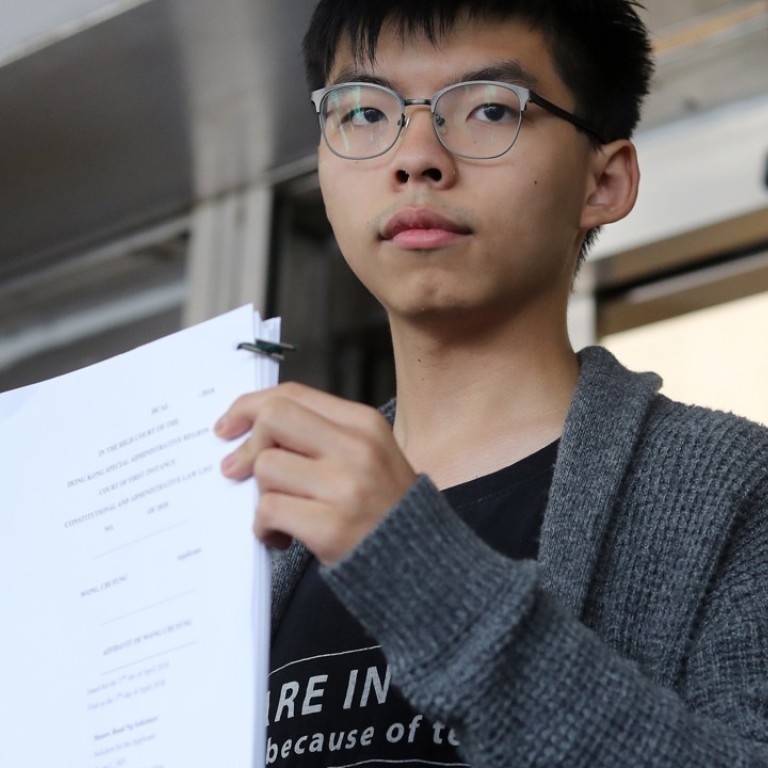
Were ‘political considerations’ behind rejection of Joshua Wong’s Hong Kong political party?
Demosisto secretary general challenges Companies Registry’s decision at High Court, saying group’s political platform should not affect whether it can be incorporated
Wong, secretary general of Demosisto, challenged the decision on Tuesday, filing a judicial review at the High Court.
He said political views were not relevant to the application process as listed in the Companies Ordinance, which says a firm may only be formed for a lawful purpose.
“In existing laws related to company registration, it does not say those advocating Hong Kong’s self-determination or independence can’t register limited companies,” Wong said.
In a writ submitted to the court, he stated the registry had erred in its understanding of the ordinance.
“’Unlawful purpose’ in ... the Companies Ordinance does not include a contravention of general tenets of the Basic Law,” the writ read.
Wong and party chairman Nathan Law Kwun-chung first applied to set up “Demosisto Limited” in March 2016, a month before they launched the party. Four months later the registry asked Demosisto to explain if it was adhering to the Basic Law by pushing for Hong Kong’s “self-determination”.
While those familiar with the process said approvals usually come in a matter of days or a month, the registry finally gave its rejection in January this year. Demosisto’s application to register with the police as a society was also rejected.
The Hong Kong National Party, which advocates the city’s independence, had its application to rename a shell company “HKNP Limited” rejected last year.

Wong accused the registry of prioritising “political considerations” over administrative concerns.
The delay in gaining proper recognition has left Demosisto unable to open a bank account, creating problems for Wong’s party in accounting and receiving donations. It is understood that the party has had to keep money in private bank accounts.
Despite the setbacks, Wong, one of the leaders of the pro-democracy Occupy protests in 2014, has ruled out changing the party’s name.
The Companies Registry, which incorporated 160,229 companies last year, refused to comment on Demosisto’s application, but said applications would be rejected if companies were formed for unlawful purposes.
“If the objects of the proposed company and the nature of activities to be conducted by the proposed company are obviously contrary to the Basic Law, the company is not formed for a lawful purpose,” it said on Tuesday.
For Wong, the rejection of Demosisto’s registration, Chow’s disqualification and the recent controversy over pro-democracy scholar Benny Tai Yiu-ting’s comments on independence all point to the government paving the way for national security laws in Hong Kong.
“In the future, with national security overriding the principles of democratic rule of law, will it lead to those calling for an end to one-party dictatorship [in China] also being unable to own a company?” Wong said.
Asked about the timing of the judicial review, Wong said his party had been caught up in the by-election, in which it supported Au Nok-hin, who won the Hong Kong Island seat.

